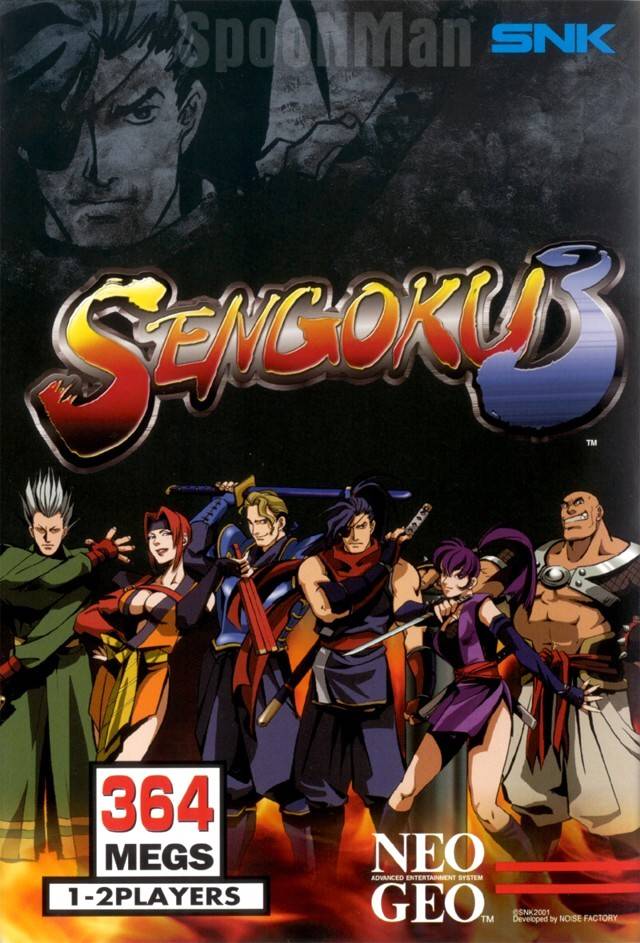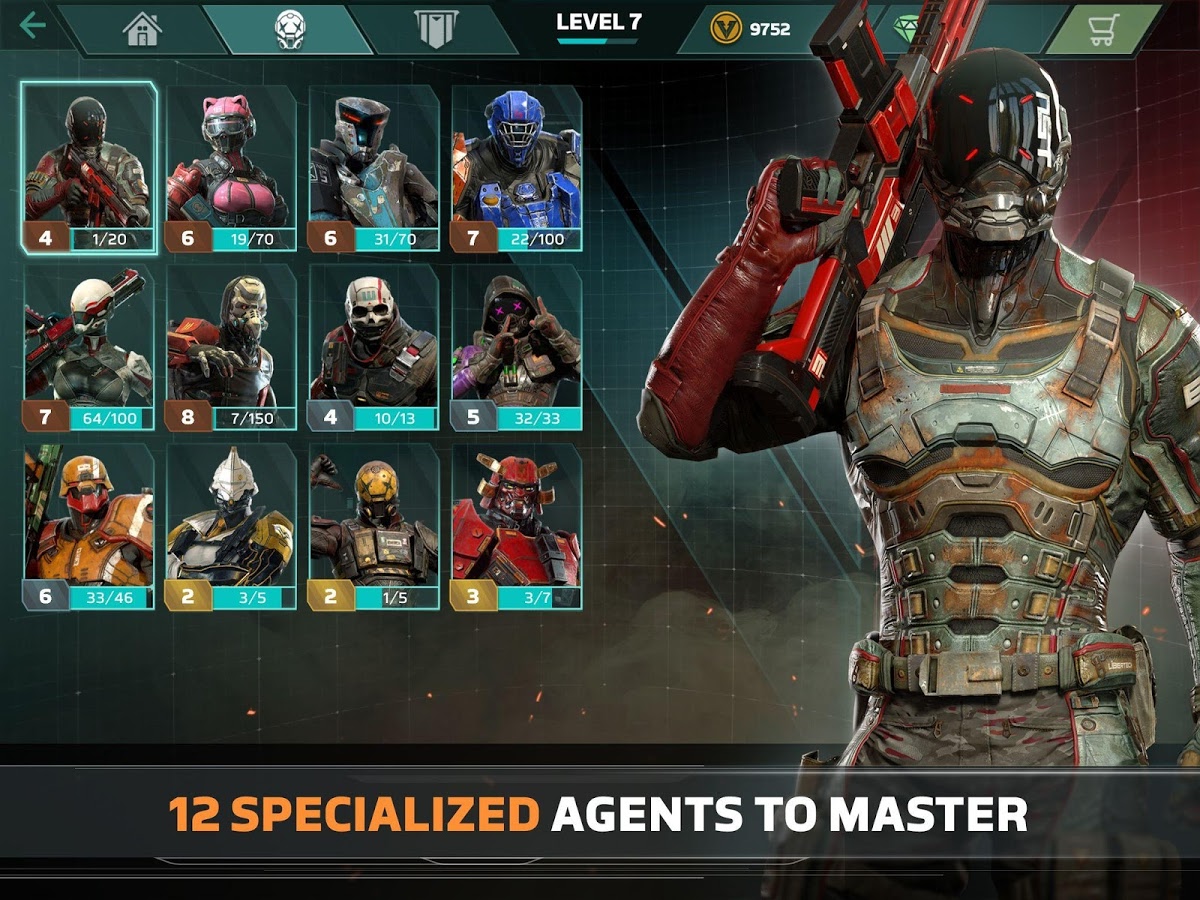
Sengoku 3 Cover
| Sengoku BASARA Samurai Heroes | |
|---|---|
| Developer(s) | Capcom |
| Publisher(s) | Capcom |
| Director(s) | Makoto Yamamoto |
| Producer(s) | Hiroyuki Kobayashi |
| Designer(s) | Mitsuru Endo |
| Artist(s) | Makoto Tsuchihayashi (character) Narumi Tauchi (background) Junichiro Ogawa (visual effects) |
| Writer(s) | Shino Okamura |
| Composer(s) | Kow Otani Masahiro Aoki Rei Kondoh Masayoshi Ishi Yasutaka Hatade Sara Sakurai |
| Series | Sengoku BASARA |
| Engine | MT Framework Lite |
| Platform(s) | PlayStation 3, Wii |
| Release |
|
| Genre(s) | Hack and slash |
| Mode(s) | Single-player, Two-player |
Bakemonogatari (化物語) or BAKEMONOGATARI: Monster Tale in the English publication, is the first part of the Monogatari series. It was originally split into two volumes. The first and second books overall, they contain the stories Hitagi Crab (ひたぎクラブ), Mayoi Mai Mai (Snail) (まよいマイマイ), Suruga Monkey.
Gameloft creates games for all digital platforms and with an audience of 147 million monthly users offers via Gameloft Advertising Solutions a unique level of visibility and involvement to advertisers. Gameloft operates its own established franchises such as Asphalt®, Order & Chaos, Modern Combat and Dungeon Hunter and also partners with major rights holders including Universal, Illumination Entertainment, Disney®, Marvel®, Hasbro®, Fox Digital Entertainment, Mattel® and Ferrari®. 
Sengoku BASARA Samurai Heroes, known in Japan as Sengoku BASARA 3,[1] is a 2010hack and slash, actionvideo game developed and published by Capcom. It is the third major installment in the Sengoku BASARA game series and the only game in the series to be released worldwide. It was released for the PlayStation 3 and Wii on July 2010 in Japan and worldwide in October.
Gameplay[edit]
A 'hack and slash' combat style emphasizing large battlefields and an element of strategy. The strength of the controlled character allows for superhuman feats of destruction against multiple foes, and the battles revolve around defeating large numbers of enemies. Additionally, missions are completed (in general) by defeating 'gate captains' and eventually a boss and/or mini-bosses. Samurai Heroes mixes up the gameplay by adding in other objectives, as well, such as guarding a castle or destroying an enemy's food reserves. The uniqueness of each character allows for different fighting styles, such as those which focus on hitting a large number of enemies versus those which focus on a few (excellent for killing boss characters). Combos can be easily performed, and characters have the ability to gain levels by completing stages, eventually unlocking skills and/or adding additional power to their existing ones. Weapon acquisition and customization is also an integral element of the game.
Characters[edit]
Characters marked with (*) are unplayable NPCs (except for Takeda Shingen, who was only in cutscenes) in the original game that have become playable in its expansion, Sengoku BASARA 3 Utage
Bold denotes starter characters in the main game and Samurai Heroes
Matsunaga Hisahide (**) did appear in Sengoku BASARA 2 Heroes as an NPC but he makes his first playable appearance in Sengoku BASARA 3 Utage
| SB | SB2 | SB3 (SH) |
|---|---|---|
| Date Masamune | Maeda Keiji | Tokugawa Ieyasu (older version) |
| Sanada Yukimura | Chōsokabe Motochika | Ishida Mitsunari |
| Honda Tadakatsu | Mōri Motonari | Ōtani Yoshitsugu |
| Shimazu Yoshihiro | Oichi | Saika Magoichi |
| Oda Nobunaga | Fūma Kotarō | Kuroda Kanbei |
| Sarutobi Sasuke* | Katakura Kojūrō* | Tsuruhime |
| Uesugi Kenshin* | Hōjō Ujimasa* | Matsunaga Hisahide** |
| Kasuga* | Kobayakawa Hideaki* | |
| Takeda Shingen* | Tenkai* | |
| Maeda Toshiie* | Tachibana Muneshige* | |
| Matsu* | Ōtomo Sōrin* | |
| Mogami Yoshiaki* |
Regional Warlords[edit]
NPC characters that serve as bosses and/or mini-bosses with no role in the story, and aren't playable in any of the games (have made their first appearance in Samurai Heroes):
Nanbu Harumasa, Satake Yoshishige, Utsunomiya Hirotsuna, Anegakōji Yoritsuna, Amago Haruhisa, and Naoe Kanetsugu.
Soundtrack[edit]
The opening theme is 'Naked arms' by T.M.Revolution. The American version of the game uses the English version of 'Naked Arms' as its opening. The ending theme is 'Gyakkō' by Chiaki Ishikawa. The American version of the games uses an instrumental track called 'Kizuna, Kokorozashi, Inochi' by Kow Ohtani.
Reception[edit]
| Reception | ||||||||||||||||||||||||||||||||||||||||||||||||||||||||||||||||||||||||||
|---|---|---|---|---|---|---|---|---|---|---|---|---|---|---|---|---|---|---|---|---|---|---|---|---|---|---|---|---|---|---|---|---|---|---|---|---|---|---|---|---|---|---|---|---|---|---|---|---|---|---|---|---|---|---|---|---|---|---|---|---|---|---|---|---|---|---|---|---|---|---|---|---|---|---|
| ||||||||||||||||||||||||||||||||||||||||||||||||||||||||||||||||||||||||||
In North America, the game received 'mixed or average' reviews on both platforms according to the review aggregation website Metacritic.[23][24] In Japan, the game received 'generally favorable' reviews. Japanese video game magazine, Famitsu, gave the PS3 version a score of 9/9/8/8 for a total of 34/40 and the Wii version a score of 9/8/8/8 for a total of 33/40.[4][5]
Capcom announced later that the game had sold over 500,000 units in Japan by September 8, 2010, becoming the best-sellingSengoku BASARA game and bringing the total sold for the series to 2.1 million.[25] The game was later re-released under the PlayStation 3 the Best label (which means it is a best-seller in Japan).[26] The game sold a total of 292,519 units during its first week on sale in Japan (PS3: 242,698 units/Wii:49,821 units) with the PS3 version being the top-selling game of the week and the Wii version being the fifth best-selling game of the week.[27] This would be the highest debut for a Sengoku BASARA game so far. The game has sold a total of 610,818 units in Japan (PS3: 422,765 units/Wii: 188,053 units).[27]
References[edit]
- ^Sengoku BASARA 3 (Japanese: 戦国BASARA3, Hepburn: Sengoku BASARA Surī)
- ^ ab'Sengoku BASARA Samurai Heroes review'. 1Up.com. October 20, 2010.
- ^Sterling, Jim (October 17, 2010). 'Review: Sengoku Basara: Samurai Heroes (PS3)'. Destructoid. Enthusiast Gaming. Retrieved September 2, 2019.
- ^ ab'戦国BASARA3ファミ通スコアPS3'. Famitsu (in Japanese). Enterbrain. Retrieved September 2, 2019.
- ^ ab'戦国BASARA3ファミ通スコアWii'. Famitsu (in Japanese). Enterbrain. Retrieved September 2, 2019.
- ^Tan, Nicholas (October 17, 2010). 'Sengoku BASARA Samurai Heroes Review (PS3)'. Game Revolution. CraveOnline. Archived from the original on September 8, 2015. Retrieved September 3, 2019.
- ^Kemps, Heidi (October 19, 2010). 'Sengoku Basara [Samurai Heroes] (PS3)'. GamePro. GamePro Media. Archived from the original on February 25, 2011. Retrieved September 3, 2019.
- ^ abPetit, Carolyn (October 20, 2010). 'Sengoku Basara: Samurai Heroes Review'. GameSpot. CBS Interactive. Retrieved September 2, 2019.
- ^'Sengoku Basara: Samurai Heroes (PS3)'. GameTrailers. Defy Media. October 13, 2010. Archived from the original on January 29, 2015. Retrieved September 2, 2019.
- ^Splechta, Mike (October 20, 2010). 'Sengoku Basara: Samurai Heroes Review (PS3)'. GameZone. Archived from the original on April 24, 2011. Retrieved September 2, 2019.
- ^ abGallegos, Anthony (October 12, 2010). 'Sengoku Basara: Samurai Heroes Review'. IGN. Ziff Davis. Retrieved September 2, 2019.
- ^'Sengoku Basara: Samurai Heroes'. Nintendo Power. Vol. 261. Future US. December 2010. p. 83.
- ^'Review: Sengoku Basara: Samurai Heroes'. PlayStation: The Official Magazine. No. 40. Future plc. December 25, 2010.
- ^Harris, Jeffrey (December 3, 2010). 'Sengoku Basara: Samurai Heroes (PS3) Review'. 411Mania. Archived from the original on December 6, 2010. Retrieved September 2, 2019.
- ^'Sengoku BASARA Samurai Heroes (PS3) review'. Gaming Age. December 20, 2010.
- ^Hargreaves, Roger (October 14, 2010). 'Games review - Sengoku Basara: Samurai Heroes cuts in (PS3)'. Metro. DMG Media. Retrieved September 2, 2019.
- ^'Sengoku BASARA Samurai Heroes - Epic Samurai Action Game'. Multiplayer.it. January 8, 2011.
- ^'Sengoku BASARA Samurai Heroes Review'. Nintendojo. December 15, 2010.
- ^'Review on Sengoku BASARA Samurai Heroes'. Play UK. No. 198. Imagine Publishing. December 25, 2010.
- ^'Sengoku BASARA Samurai Heroes review'. PlayStation Universe. October 25, 2010.
- ^'Sengoku BASARA Samurai Heroes (Wii) Review'. Vandal. October 20, 2010.
- ^ ab'Sengoku BASARA Samurai Heroes'. Worth Playing. January 1, 2011.
- ^ ab'Sengoku Basara: Samurai Heroes for PlayStation 3 Reviews'. Metacritic. CBS Interactive. Retrieved September 2, 2019.
- ^ ab'Sengoku Basara: Samurai Heroes for Wii Reviews'. Metacritic. CBS Interactive. Retrieved September 2, 2019.
- ^'Capcom's Popular 'Sengoku BASARA: Samurai Heroes' Breaks the 500,000 Mark!'. Capcom. September 8, 2010. Retrieved January 10, 2019.
- ^'Sengoku BASARA 3 (PlayStation 3 the Best) [Japan Import]'. Amazon.com.
- ^ ab'Sengoku BASARA'. Salesdatabase.
External links[edit]
- Sengoku Basara: Samurai Heroes at MobyGames